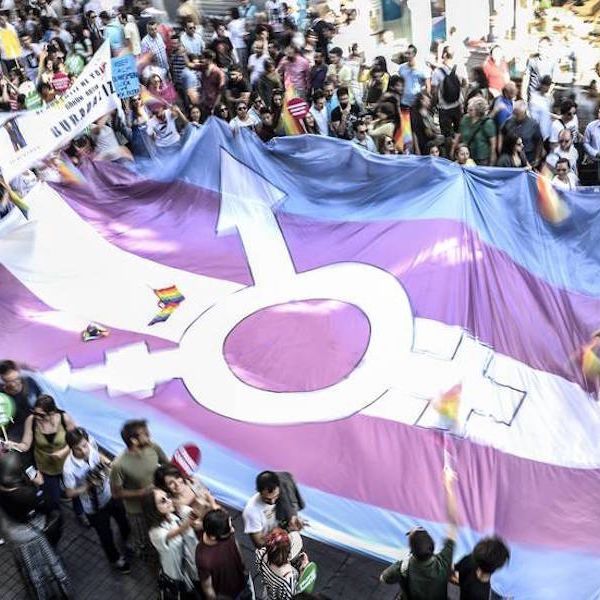I've been thinking about representation in media a lot lately. I'm happy to see more lesbian and bisexual women together in media--especially when they just get to be normal and happy, not just something exciting and sexy. But as much as I'm happy to see that part of my identity, there's always a hollow feeling that goes along with it. I thought I would never see someone on TV or in movies that represented another part of me; someone who is asexual.
For the past four years it's been a real struggle for me to try to find a name for myself. I thought that I couldn't be bisexual and be asexual at the same time. The classic, "oh I just haven't met the right person" was always something I would fall back to when I started to get too comfortable with the term asexual. But I feel firm in my identity now, and it really took one moment this summer to solidify it.
This was one of the final moments in the most recent season of BoJack Horseman. I remember that it was late at night, I had been binging the season all day, and I was in my room with my headphones on. When I saw this moment, I started crying and I couldn't stop. My chest hurt and it was hard to breathe for a moment. I was so happy and surprised, I felt relieved. I knew I wasn't reacting like this without reason; it had to mean something.
Something that was so influential to my unease with actually calling myself asexual was the way that I saw asexuality being talked about in media. Characters that were never actually named as asexual, and that always ended up being shoved into straight and sexualized relationships anyway, were always written as cold, inhuman, and mechanic. Sherlock Holmes and Sheldon from The Big Bang Theory are two examples that come to mind right away. But that's not me, and it's never been me. I'm empathetic to a fault, I have dumb humor, and I have huge love for the people in my life. And that's Todd from BoJack Horseman, too. So when I saw myself reflected in a character who just said he's asexual as openly as it's ever been said on TV, I lost it. I was normal; I was acknowledged. I am not a machine, asexual people are not machines, and now maybe more people can understand that because of this show.
Representation matters. Because I grew up seeing gay and lesbian couples being normalized, I've never felt scared to say that I like men and women. But I've been mortified to say anything about being asexual because I'd never seen it and I'd never seen myself in anyone who could be. In July of 2016, I finally saw what I'd been waiting for. So here I am. I'm here, I'm human, and I feel more normal than I ever have.





















